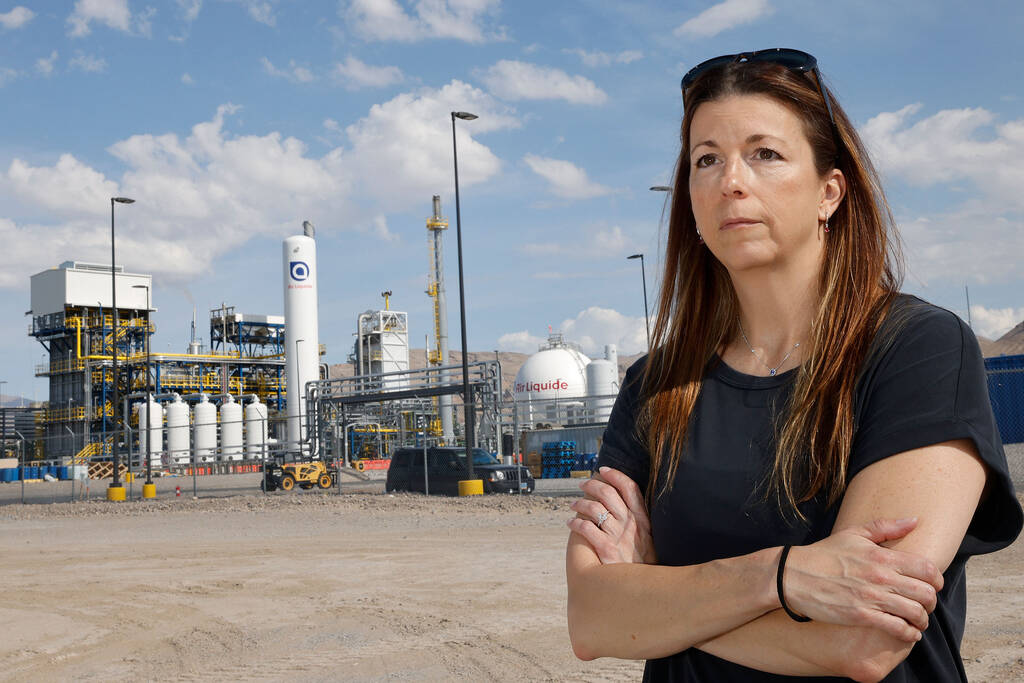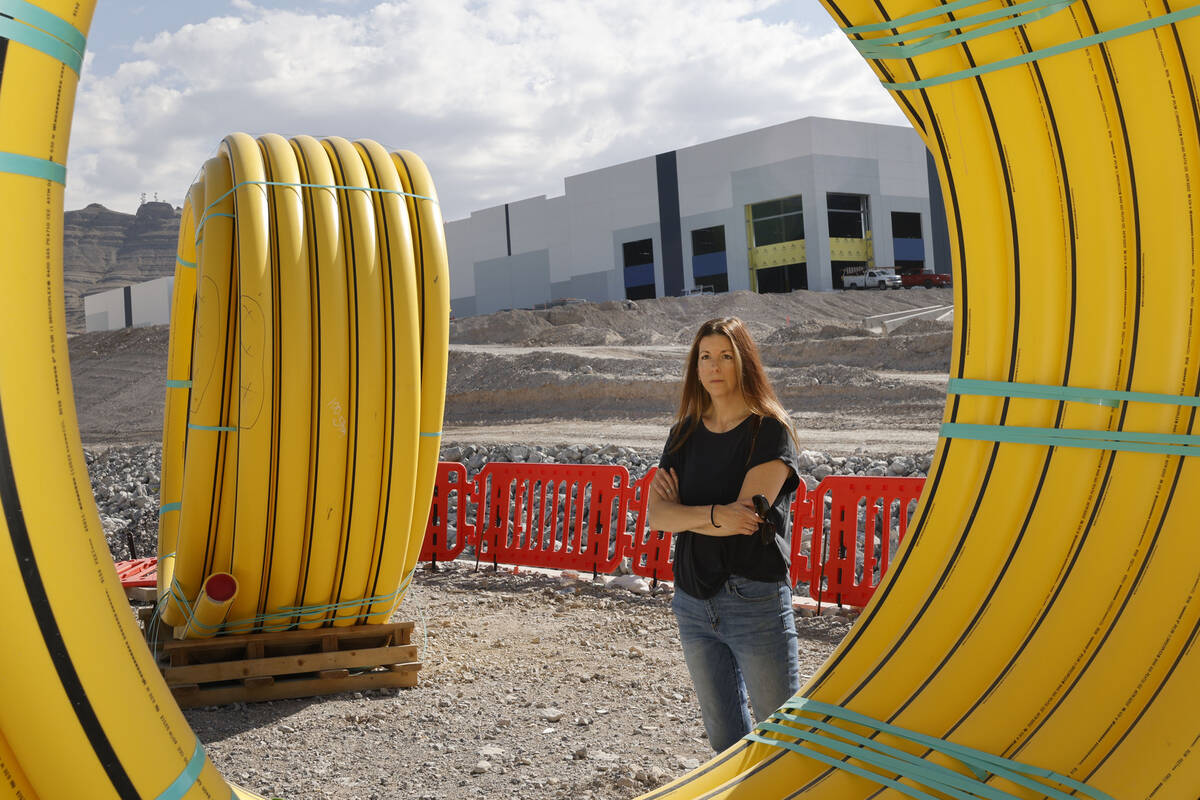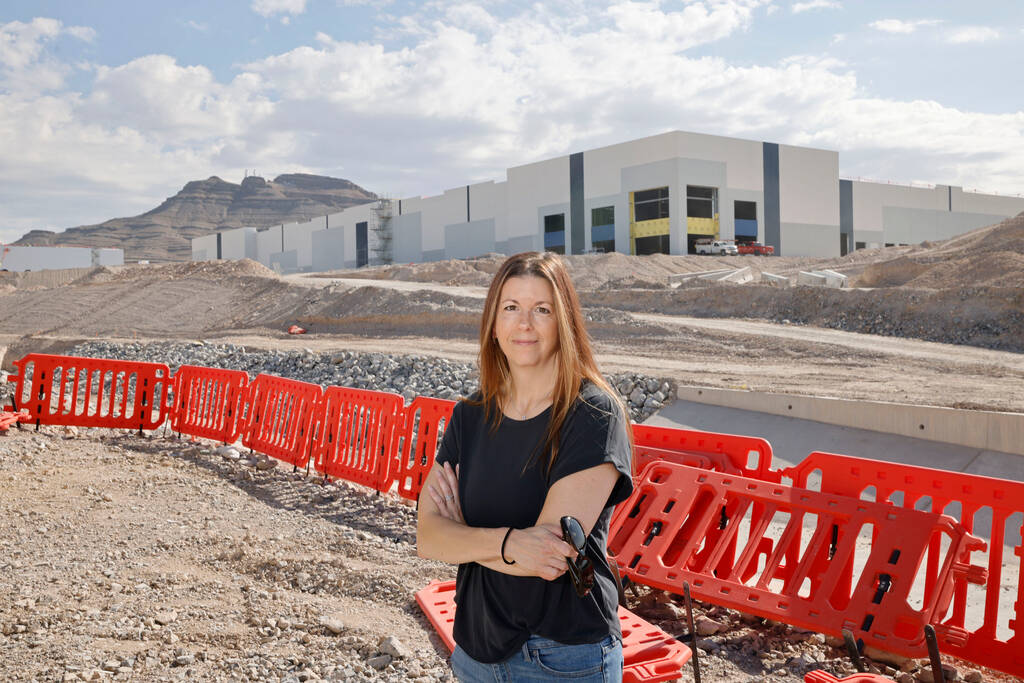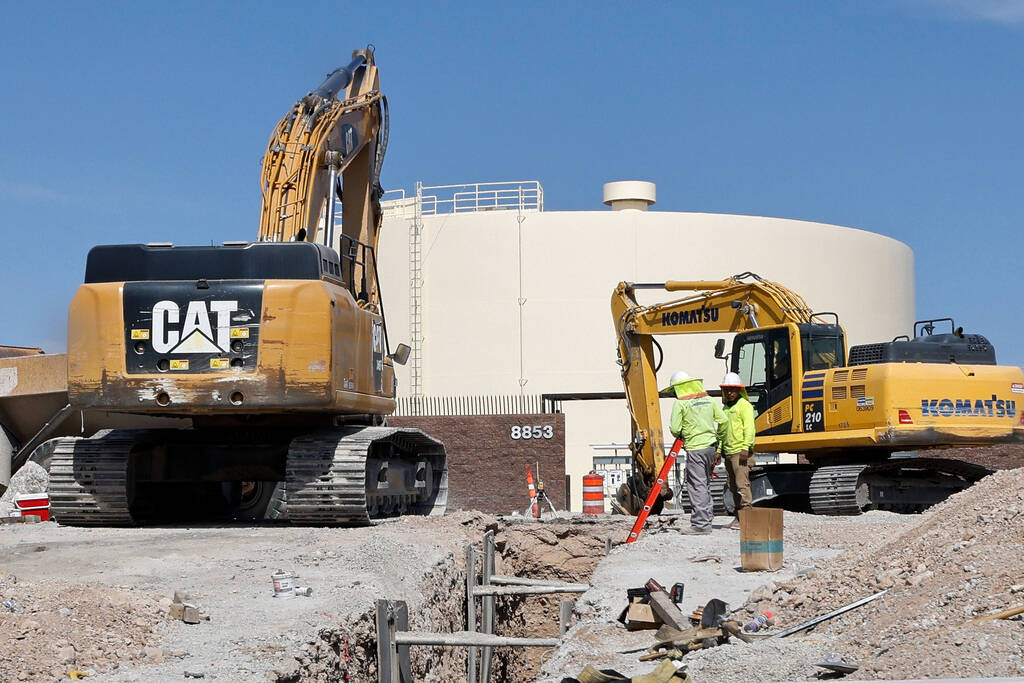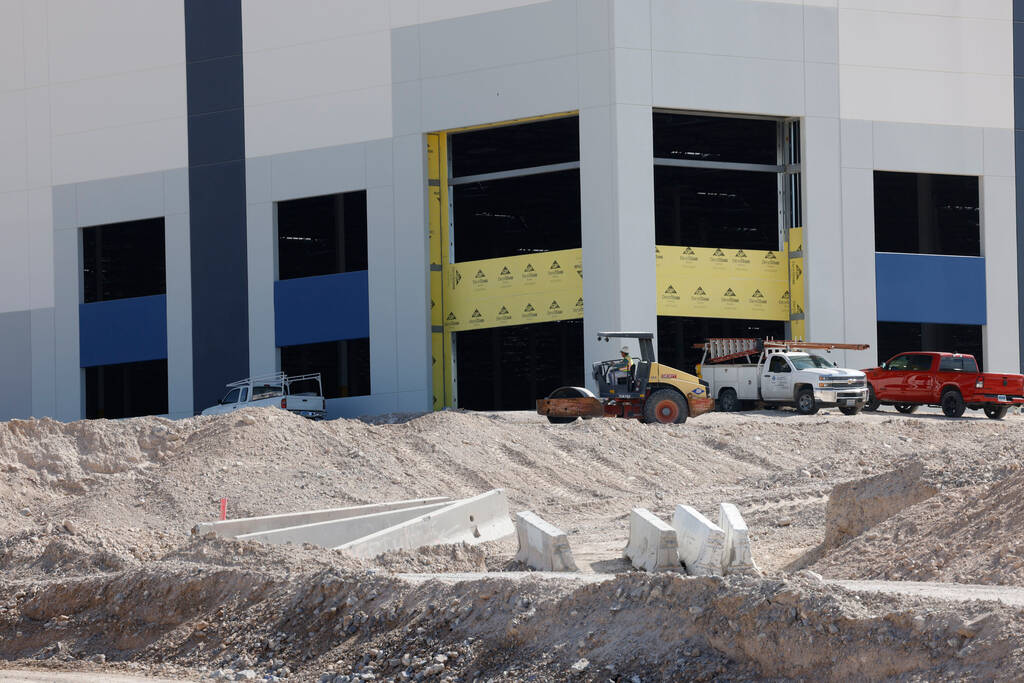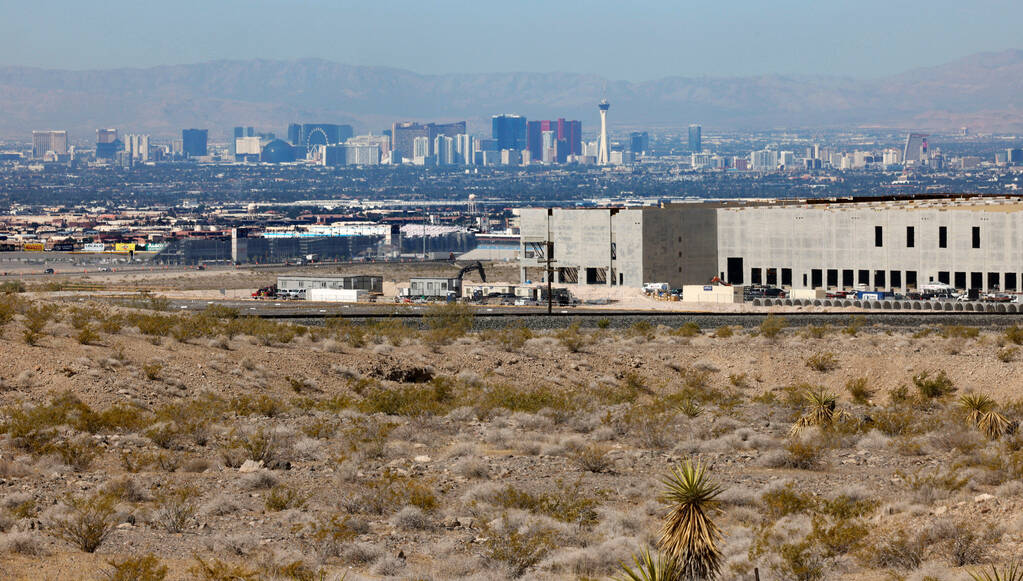Is Apex Industrial Park finally ready to take off?
Apex Industrial Park, a long-standing project to create a vast manufacturing hub in North Las Vegas, has been marred by bureaucratic roadblocks, red tape and a cumbersome permit process.
However, over the past few years the park’s trajectory is looking up as buildings are sprouting on a regular basis. Sen. Catherine Cortez Masto, D-Nev., said recently introduced legislation could soon put the area into overdrive.
She said she is hoping to cut the “unnecessary red tape” with the Bureau of Land Management and make it easier for companies to hook up to services at Apex, which has been an issue for the industrial park.
“Right now, every business that wants to start construction or expand at Apex has to go through a complicated permitting process with the BLM to get permission to run their sewer, gas, power, access roads, and broadband lines across those BLM-controlled corridors,” Cortez Masto said in an email to the Review-Journal.
The industrial park, which was conceived in 1989, encompasses 18,000 acres off Interstate 15 at U.S. Highway 93, though only a small portion — 1,000 acres — has been used so far, with another 1,000 acres in development.
The park was originally located on federal land and was controlled solely by the BLM. Years ago, Congress passed legislation to hand over a portion of the land to Kerr-McGee, a chemical company that has since gone out of business, and to Clark County.
However, the BLM maintained control of various utility corridors that crisscross the entire development, according to Cortez Masto’s office.
“Each of these utilities requires a separate BLM permit, which as you can imagine is incredibly complicated and burdensome,” the senator said. “It can take anywhere from 12 to 36 months for projects to get approved, and every company is on a separate timeline. Some developers have been facing wait times of over six years to get all their different permits approved.”
Cumbersome permitting process
Cortez Masto explained that the City of North Las Vegas and the Apex Industrial Park Owners Association handle most of the site’s business and expansion. However, without the new legislation, neither has the authority to permit new pipelines, power connections or roads for businesses and their facilities.
Her bill is designed to revamp this permitting process and promote economic growth by allowing North Las Vegas and the Apex Industrial Park Owners Association to issue permits and get new and existing businesses the utilities they need to operate.
Rep. Steven Horsford, D-Nev., has introduced companion legislation in the House of Representatives.
North Las Vegas Mayor Pamela Goynes-Brown said in a news release that the proposed legislation, known as the Apex Area Technical Corrections Act, “cleans up some policies which inadvertently make the job of our federal land managers much harder and hampers economic development and diversification.”
Lisa Cole is the vice president for the Las Vegas-based Land Development Associates, which has helped coordinate nearly all of Apex’s major infrastructure projects, including the development of waterline and wastewater systems. She’s been involved with Apex since 2001 and said it’s great to see a long-standing vision of an industrial park on the outskirts of Las Vegas finally starting to take shape.
“In large part, it’s already started,” Cole said about the recent uptick in development at Apex. She said the park was originally to be operated by Clark County, but the project stalled for years until North Las Vegas got involved.
When the city “was in its financial troubles, they really looked to Apex as their salvation,” she said. “It added around 45 square miles to their boundaries. So their thought was, rather than file for bankruptcy to solve their problems, they were going to use ‘grownomics,’ as the mayor used to call it, and grow the city out of their problems by increasing their tax base, and Apex fit right into that.”
Cole, who has seen the project through countless ups and downs, said it definitely holds a special place in her heart now.
“My son was one year old when I started working on this, so I’ve been able to see them both grow up together.”
Investment in infrastructure
According to the city’s website, North Las Vegas has invested more than $63 million in a public-private partnership to bring water and sewer infrastructure to the park, and it is working with the Southern Nevada Water Authority on a $250 million investment that will bring additional water and sewer infrastructure to Apex.
In January, the SNWA gave the green light for more than $70 million in water projects throughout the Las Vegas valley, with about 50 percent going toward a series of pipelines that city officials are expecting to bolster economic development, specifically at Apex.
The water pipeline project is expected to allow North Las Vegas to fully develop the industrial park in the coming years. The city also noted on its website that $58 million has already been spent on improving highways leading to Apex, including an interchange and the widening of U.S. 93.
A handful of companies have already opened or have begun construction lately on new facilities in Apex.
VanTrust Real Estate announced in November that it had started construction on the first of two buildings in Vantage North, a 4.5 million-square-foot logistics and distribution project located within the park. According to a news release, it has already pre-leased 580,000 square feet to Saddle Creek Logistics Services.
Last May, French energy giant Air Liquide opened a $250 million liquid hydrogen plant in the park, where it will produce 30 tons of liquid hydrogen per day, and Reno developer Dermody Properties broke ground in late 2021 on a 664,300-square-foot distribution facility nearby.
Aluminum beverage can-maker Ball Corp. also has plans to build a plant in Apex, and grocery chain Smith’s purchased nearly 100 acres in 2021 as well.
Last July, NorthPoint Development also broke ground on a two-building industrial complex in Apex. The project, North Vegas Logistics Center, is expected to span more than 2 million square feet on almost 130 acres.
There also have been some notable flops at Apex, such as Faraday Future, an electric carmaker that garnered widespread support for a proposed $1.3 billion factory that it never built. Faraday ultimately sold its land at Apex to a Canadian investment firm for less than half the asking price.
Contact Patrick Blennerhassett at pblennerhassett@reviewjournal.com or 702-348-3967.



